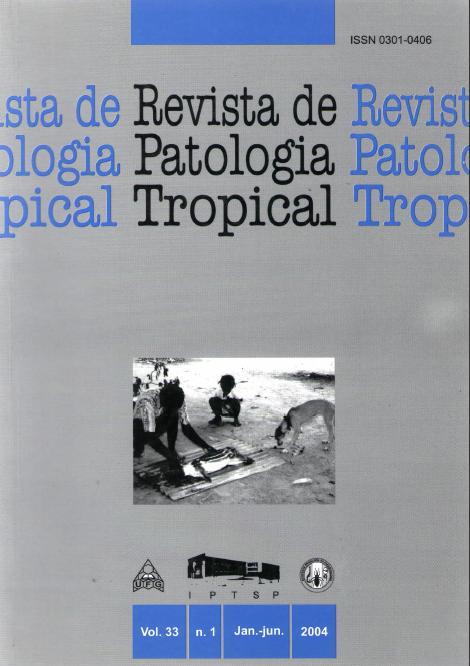PRELIMINARY FIELD OBSERVATIONS ON NEOTROPICAL ECHINOCOCCOSIS IN SURINAME
DOI:
https://doi.org/10.5216/rpt.v33i1.3252Abstract
The objective of this preliminary field investigation was to examine circumstances by which residents of Suriname might be exposed to metacestode infections of neotropical Echinococcus species. We visited the areas where the 8 humaris cases of polycystic echinococcosis probably had acquired the infection (7 cases infected by E. vogeli and one by E. oligarthrus). This note summarizes the observations obtained during a twoweek visit. The wiid dog Speothus venaticus (cachorro-do-mato in Brazil: bush dog in English) was known mainly by name, only few persons had ever seen one. It is also known for its hunting preference for pacas. Pacas are abundant and esteemed for the quality of their meat. These animais are the only 2 natural hosts of Echinococcus vogeli in nature. Despite the few animais and persons studied, the positive results of the observations fuifilled the objective of the visit: the location of friendly rural human populations in arcas where cases of polycystic echinococcOsis had been diagnosed, where pacas were abundant and frequentiy hunted, and where domestic dogs were numerous. The viliages of Witagron and Kaaimanston were selected as the best for a future study. In addition of having the characteristics mentioned above they were located within 2 hours by car from the capital. Furthermore, they are visited monthly by medical personnel, including a physician from the Medical Mission. The custom of feeding the viscera ofDownloads
Downloads
Published
How to Cite
Issue
Section
License
The manuscript submission must be accompanied by a letter signed by all authors stating the full name and email address, confirming that the material has not been published or is under consideration for publication elsewhere, and agreeing to transfer copyright in all media and formats for Journal of Tropical Pathology. The authors will not be paid for published articles. They are solely responsible for the content of those articles, even if the Editor holds the right to adjust them to the norms of the journal.
The reviewers will not be paid for the peer review process.

